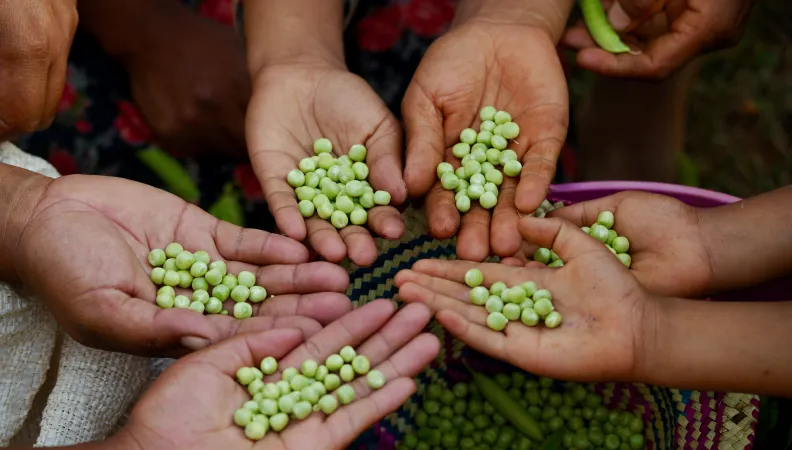Share the page
Placing contract farming in the service of development, food security and equality
Published on
Anne Valto Senior development impact advisor Finnfund

Private Sector & Development #39 - Food security: the contribution of the private sector
To mark World Food Day on 16th October 2023, the 39th issue was devoted to food security. It provides a collective reflection on the subject and highlights the need to get the private sector more involved in safeguarding food security across the globe.
The 2022 Global Report on Food Crises estimates that at least one in five Africans goes to bed hungry, and an estimated 140 million people in Africa face acute food insecurity. The Horn of Africa, in particular, is again suffering from persistent drought, and countries dependent on imported wheat and sunflower oil are suffering as prices have skyrocketed because of the Ukraine war. Gender inequity – with women precluded from contributing – compounds the issues.
Many of Finnfund’s agricultural investments have small-holder farmers in their supply chains, through various types of contractual arrangements; food security and smallholder access to markets are key development impacts in these investments.
Generally, smallholder farmers in Africa struggle with limited access to quality inputs, seeds, fertilizers, modern farming methods and access to markets. We want to better understand how agricultural companies typically engage with smallholders: what are the benefits, risks, and obstacles in engaging with them; what are the impacts of contract farming on food security. Finnfund also wants to assemble best practices to manage and mitigate these. Increased food production does not necessarily imply food security, whereas investment in cash crops for export, potentially decreases food security at the community level. Furthermore, reliance on smallholder suppliers for crop purchases, poses various risks for companies.
What follows are key best practices and ideas obtained from recent academic research. ‘Smallholder incorporation in commercial value chains through agricultural traders and local food security’, 2022 (with E2 Research).
FARMER RISKS AND BENEFITS
Smallholder farmers are eager to participate in contract farming as it offers an opportunity for livelihood improvement and the possibility to reduce risk – for example, price fluctuations. One of the major reasons contract farming is increasing in popularity is the spread of food retailing businesses, due to rapid urbanization, requiring a steady flow of high-quality raw materials. This requires vertical coordination between producers and markets. Also, contract farming may also offer farmers access to farming inputs and advisory services.
While increased income from contract farming may lead to improved food security and dietary diversity, because households can afford to buy additional items from the market, it does not automatically do so. Households may prioritise other spending, such as on school fees or agricultural inputs, or there may be limited diversity of food in local markets. There is also the tendency to favour contract farmers with larger parcels of land and with access to irrigation. On the risk side, narrowing crop diversity and moving to monocultures can result in a loss of soil fertility and biodiversity, leading to increased exposure to pests and price shocks.
GENDER RELATIONS AND FOOD SECURITY
Women’s access to productive resources such as land and finance is traditionally more limited compared with men, as is their general decision-making power at the household and community levels. On the positive side, contract farming provides the opportunity to empower women, by allowing them to participate, which enables them to attain financial independence and increase their bargaining power within their households. Yet, to succeed, awareness raising is needed. On the contrary, contract farming could reinforce the current gendered modes of operations. It may also have negative gendered effects if traditional food crops are displaced by cash crops.
FOOD SECURITY RISKS AND BENEFITS AT COMMUNITY LEVEL
Changes in local crop production inevitably impact local food security. Not all community members benefit from contract farming, and there is a risk of increasing inequality. Additionally, the availability and diversity of locally acceptable food may decrease when land is allocated for cash crops, and food price fluctuations may increase.
Those not participating as contract farmers can also benefit, through increased job availability, infrastructure development and corporate social responsibility activities implemented by companies. Developing farmer organisations may also increase local capacities and social cohesion.
There are a huge variety of contexts for smallholder contract farming; thus there is no panacea that would solve all smallholder partnership challenges. That said, there are important findings in the study that could guide risk mitigation, from both farmer and company perspectives. These include taking into consideration historical and institutional legacies that have shaped local conditions, having professionally managed contractual relations and mutual trust, as well as a market-driven approach.

